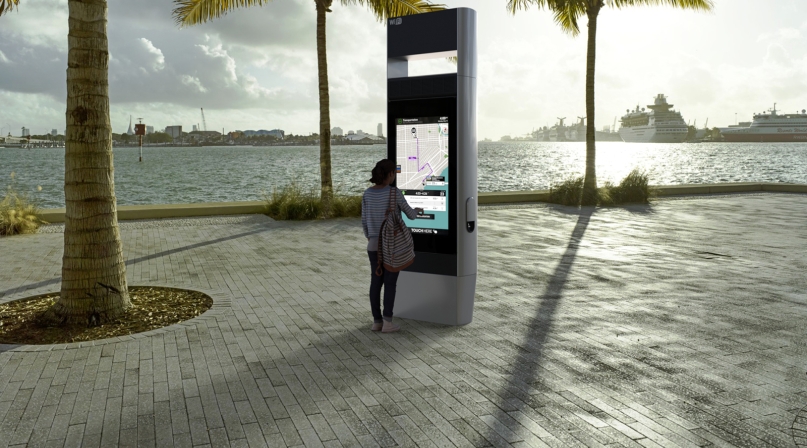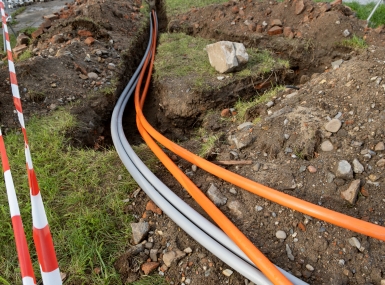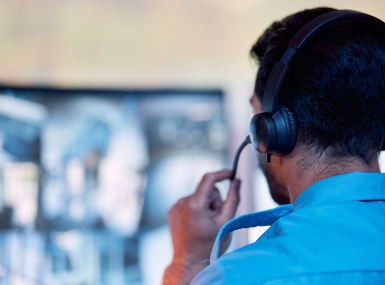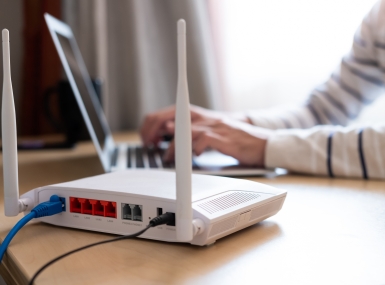Miami-Dade County is taking Wi-Fi, well...everywhere
Upcoming Events
Related News

Miami-Dade County will offer free wifi on more than 1,000 buses and trains and hundreds of kiosks
Imagine downloading a huge file to your smartphone via Wi-Fi while riding on a county transit bus, and once you get off the download continues — still over free broadband Wi-Fi and not using megabytes of your cellular data plan — without a hitch.
Soon, Miami-Dade County residents and tourists won’t have to imagine it. The county recently inked a public-private partnership that eventually will bring free onboard Wi-Fi to more than 1,000 buses and trains, along with hundreds of interactive fixed kiosks.
“It’s like a canopy of technology — like a network of services that we’re going to be providing,” said Rosie Perez, director of transportation services for the county’s IT department.
Over the next three months, the county’s partner, CIVIQ Smartscapes, will begin the deployment at no cost to the county. The vendor is investing $20 million in the project and will generate revenue from advertising on the kiosks that will be shared with the county.
Currently, about 200 buses are equipped with mobile Wi-Fi, Perez said, but it’s unreliable technology.
“Part of the agreement is that they will replace all of our devices with new technology devices aboard our buses, trains and mover vehicles as well as the stations,” she said.
“They will also help reduce the cost we currently pay on those cellular charges because they’re going to assume those costs — meaning that will be a savings for us and an avoidance in the future, because we don’t have wireless capability on all of our buses.”
Up to 300 stationary “digital waypoint” kiosks will provide free Wi-Fi to an area within a 150-foot line of sight of the hotspots, according to county documents.
“These new devices and services are much more than a new way to access the internet,” said Alice Bravo, Miami-Dade’s director of public works. “Greater connectivity in the transit system means increased efficiency, less downtime and overall better experiences for our passengers.”
Perhaps more importantly to the county, this new hardware will provide a channel for greater citizen engagement, county officials said. The waypoints include touchscreens that can deliver messages from the county, alerts, bus and train arrival times, and more. They also include speakers, and cameras that can be used for communication or security.
Among the specifications for the kiosks are that their structures will be aluminum, “vandal resistant” and resistant to water and ultraviolet light. They’ll also include “ruggedized” USB charging stations with quick-charge technology.
Perez said an initial prototype kiosk will be installed at the county government center, and she expects the devices’ features to evolve.
“Let’s say — and this is more futuristic — let’s say you want to pay your taxes, eventually we’ll be able to provide those type of services … through this electronic medium.”
George Burciaga, CIVIQ Smartscapes’ managing director for government development and innovation, said, “We’ll have county applications on the screens that will give them information about services, wayfinding, maps and services to help direct citizens and tourists across the county.” The company calls it a “smart city” solution that “connects devices, people and services to deliver citizen engagement and improved city services.”
If the concept sounds familiar, the company and other technology partners are responsible for LinkNYC in New York City, a communications network that replaces payphones with kiosks with free high-speed Wi-Fi, fast USB charging, domestic calling and direct access to 911 and 311.
CIVIQ recently announced that Chicago will launch a pilot of the technology and hardware.
“Connecting smart devices, services and people will allow cities to react to human occurrences in real time, while becoming more efficient and sustainable,” Burciaga has said.
It’s part of a broader trend. “We’re seeing cities all across the world moving into a phase of becoming smarter,” he told County News. “It’s happening everywhere. The biggest tech firms in the world are all working towards smart-city-based initiatives.”
Attachments
Related News

Bureau of Land Management updates regulations for broadband infrastructure development on federal public lands
The BLM published a final rule to update regulations for developing and operating broadband infrastructure on public lands.

FCC takes critical steps to improve the 988 National Suicide Lifeline
On March 21, bipartisan congressional leaders and FCC Chairwoman Jessica Rosenworcel announced steps to improve the 988 National Suicide Lifeline. This announcement marks major progress on the nation’s crisis response, a priority for counties and a key policy pillar of the NACo Commission on Mental Health and Wellbeing.
